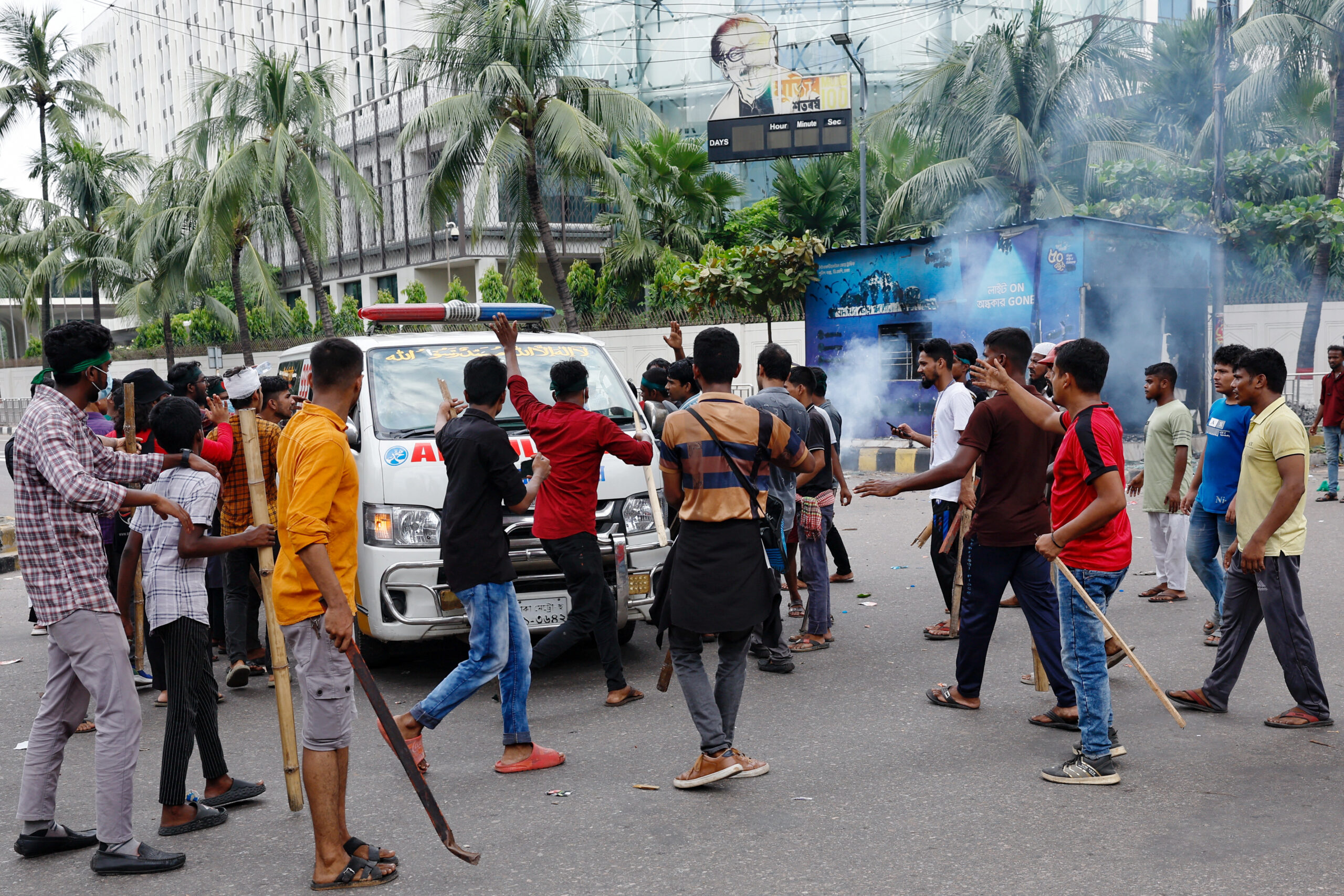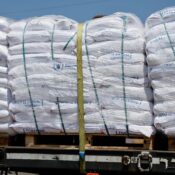
Curfew is in place as fighting rocks Bangladesh, killing at least 91 people
As police used tear gas and rubber bullets to scatter tens of thousands of demonstrators demanding the resignation of Prime Minister Sheikh Hasina, at least 91 people were killed and hundreds injured in violence in Bangladesh on Sunday.
The number of fatalities—which includes at least 13 police officers—was more than any other protest-related day in recent memory in Bangladesh. It surpassed the 67 recorded on July 19, when students demonstrated to call for the elimination of government employment quotas.
This is the first time the government has implemented an indefinite statewide curfew since the protests that started last month. It was announced at 6 p.m. (1200 GMT) on Sunday. Additionally, a three-day nationwide holiday beginning on Monday was declared.
After winning a fourth consecutive term in elections that were boycotted by the main opposition Bangladesh Nationalist Party, Hasina’s toughest test as leader of her 20-year reign has been the turmoil, which has forced the government to shut down internet access.
Human rights organizations and Hasina’s detractors have charged that her administration is employing disproportionate force against demonstrators; she and her officials refute this accusation.
Major thoroughfares were blocked by protestors on Sunday as student activists began a campaign of non-cooperation to demand the resignation of the administration, and violence quickly expanded across the country.
Following a national security panel meeting that included the heads of the army, navy, air force, police, and other agencies, Hasina declared, “Those who are carrying out violence are not students but terrorists who are out to destabilize the nation.”
“I appeal to our countrymen to suppress these terrorists with a strong hand.”
The 170 million-person nation was shaken by violence, which attacked police stations and governing party headquarters.
In the Sirajganj neighborhood in the northwest, thirteen police officers were fatally assaulted, according to the authorities. In the district, where the houses of two MPs were set on fire, nine more people perished.
Intense fights in many parts of the city, Dhaka, resulted in the deaths of at least 11 people, including two students and a senior of the ruling party, and the injuries of numerous more, according to witnesses and police.
Indian citizens are advised by their foreign ministry to postpone their trip to Bangladesh till further notice.
BULLETS WOUNDS
A three-way battle between demonstrators, police, and governing party supporters in Munsiganj’s central area resulted in the deaths of two construction workers who were on their way to work and the injuries of thirty others, according to witnesses.
Abu Hena Mohammad Jamal, the district hospital’s supervisor, stated, “They were brought dead to the hospital with bullet wounds.”
There were no live shots fired, according to the police.
Witnesses reported that at least three persons were murdered and fifty injured in a fight between demonstrators and members of Hasina’s ruling Awami League party in the northeastern Pabna district.
Eight in Feni and Lakshmipur, six in Narsingdi, five in Rangpur, four in Magura, and the remaining number in a number of other districts, according to hospital authorities.
“An assault on a medical facility is intolerable,” declared Health Minister Samanta Lal Sen following a group’s vandalism of a medical college hospital in Dhaka and their setting of several cars, including an ambulance, on fire.
According to authorities, at least four clothing manufacturers in Ashulia, a neighborhood outside of Dhaka, were set on fire.
According to cell providers, the government has blocked access to high-speed internet services for the second time during the current protests. Not even with internet connections were the social media sites Facebook and WhatsApp accessible.
According to a secret government document obtained by Reuters, Bangladeshi officials gave telecom companies the order to turn off 4G on Sunday, so cutting off internet access.
GOVERNMENT ORDERS
The memo, released by the government intelligence organization National Telecommunication Monitoring Center, stated, “You are requested to shut down all your 4G services until further notice, only 2G will be effective.”
According to someone with firsthand information who spoke to Reuters, telecom companies were previously informed that their licenses would be revoked if they disobeyed government demands.
Calls from Reuters were not answered by the telecom regulating organization.
Student organizations demonstrating against government employment quotas set off a wave of violence last month that resulted in thousands of injuries and at least 150 fatalities.
Students resumed their intermittent public demonstrations this week, calling for justice for the families of those slain, after the Supreme Court’s decision to abolish most quotas.
Shakil Ahmed, an associate professor of politics and administration at Jahangirnagar University, stated, “I think the genie is out of the bottle and Hasina may not put it back in the bottle again.”
In a statement, the Chief of Army Staff, General Waker-Uz-Zaman, gave his subordinates orders on Saturday to make sure that people’s lives, property, and significant state installations are secure at all times.
“The people’s trust in the Bangladesh Army is symbolised.” He said, “The army is and will always be there for the needs of the state and for the interests of the people,” according to the statement.
An army spokesman stated that Zaman will brief the media on Monday.
All Categories
Recent Posts
Tags
+13162306000
zoneyetu@yahoo.com



